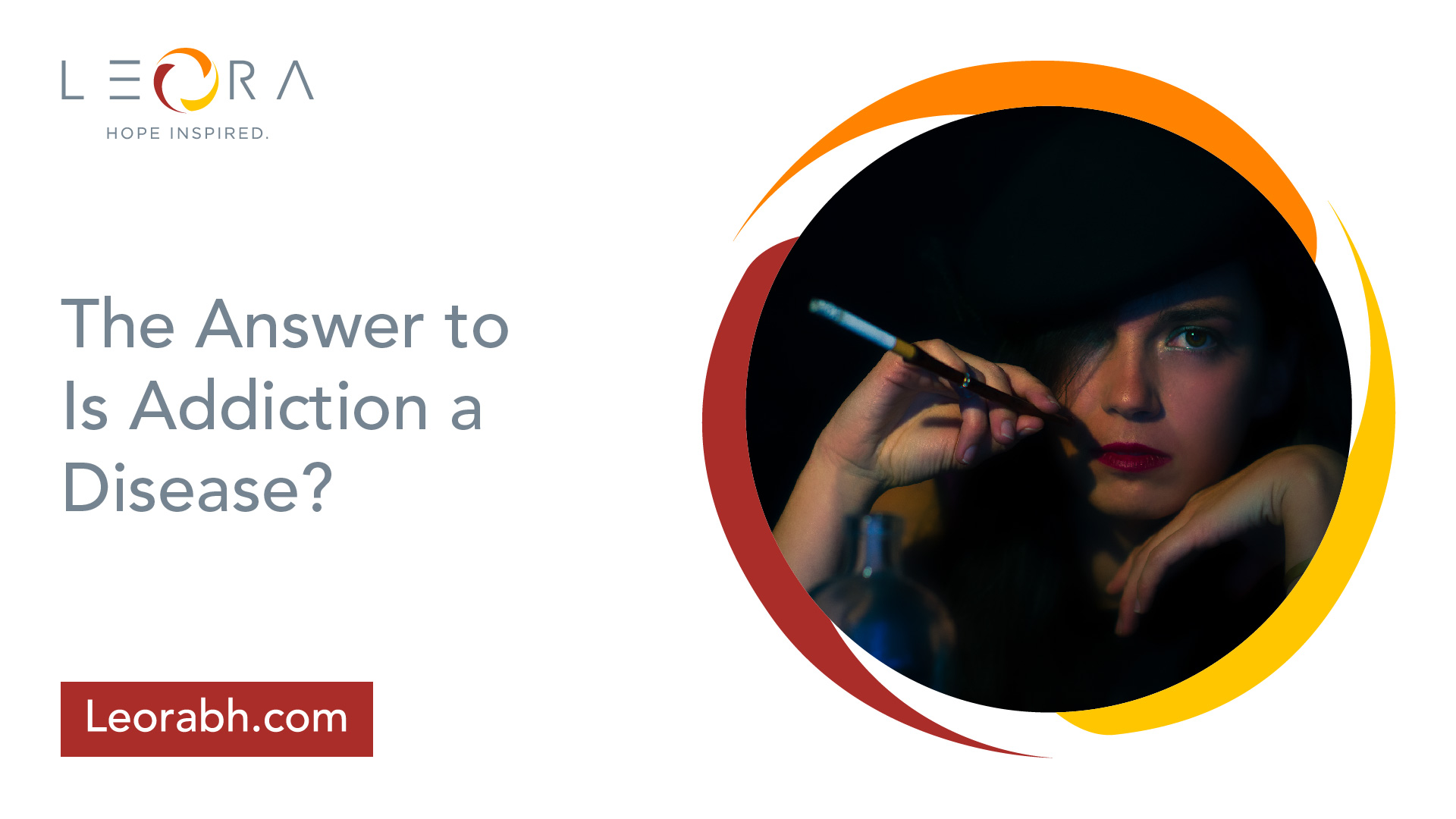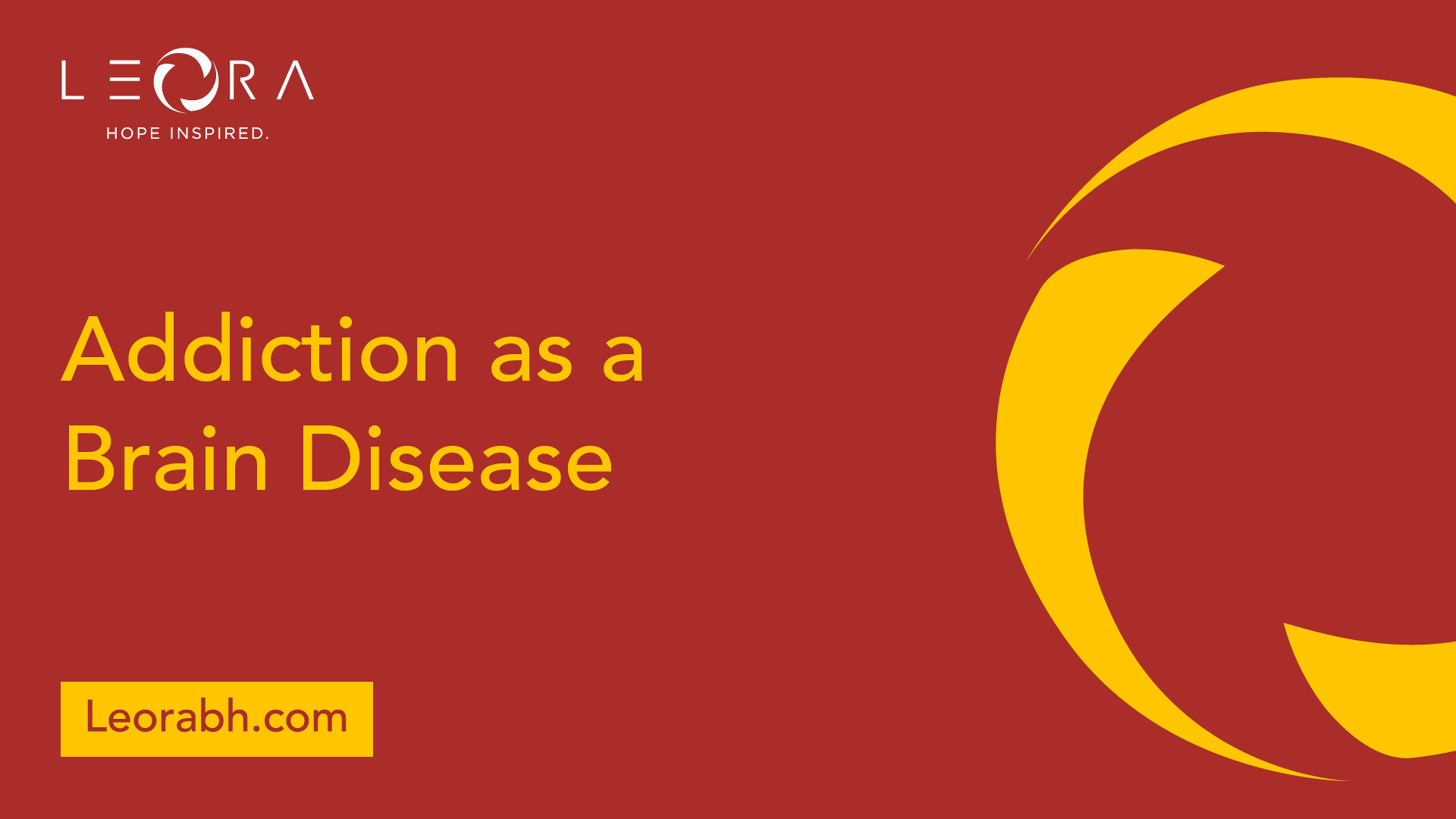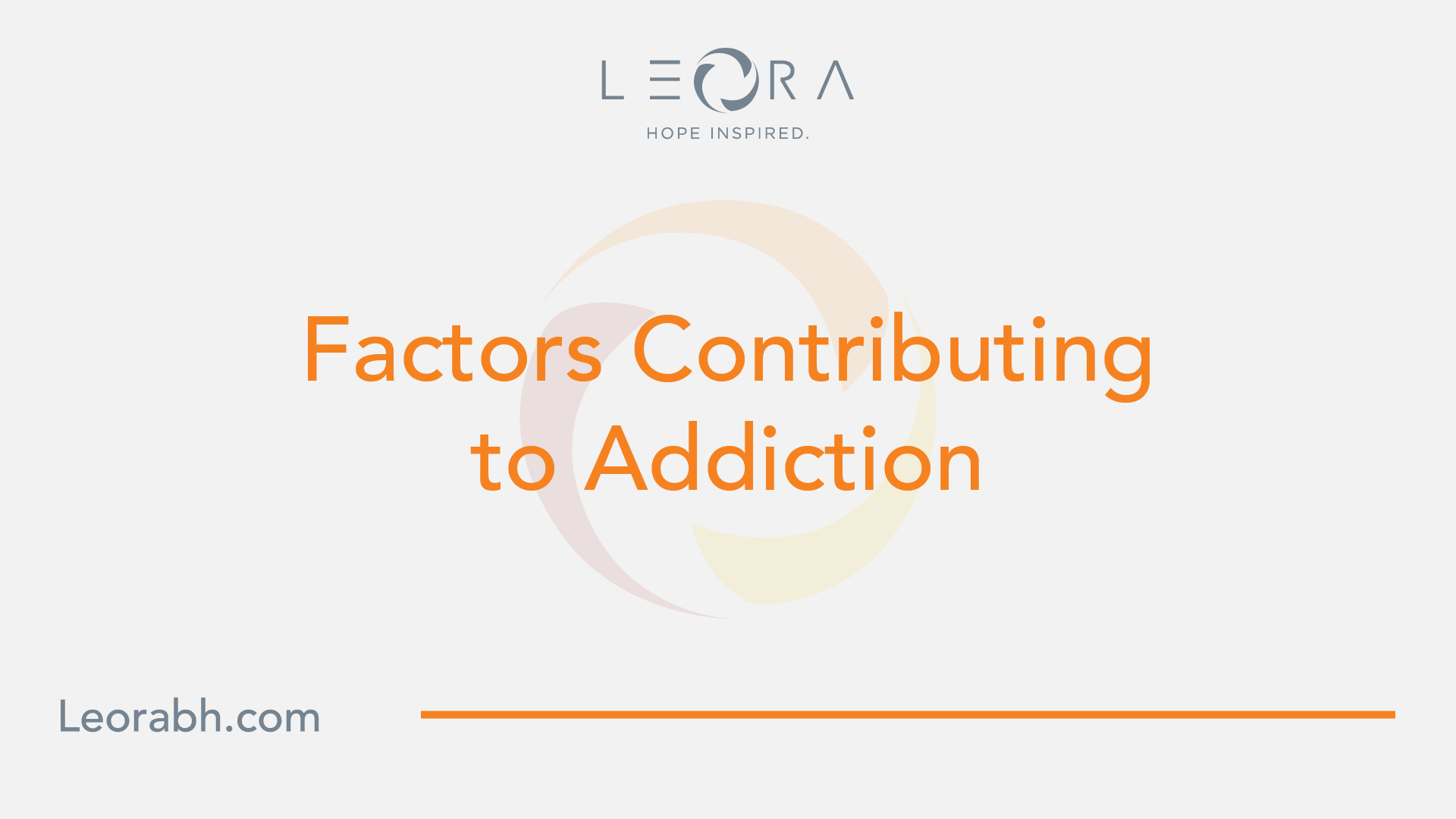The Answer to Is Addiction a Disease?
Unveiling the answer: Is addiction a disease or choice? Explore brain changes, treatment options, and challenging stigma. Find clarity now.
Understanding Addiction
To gain a comprehensive understanding of addiction, it is important to explore what addiction is and differentiate between behavioral addiction and substance addiction.
What is Addiction?
Addiction is defined as a treatable, chronic medical disease involving complex interactions among brain circuits, genetics, the environment, and an individual's life experiences. People with addiction engage in compulsive behaviors that often continue despite harmful consequences.

Addiction involves the regular misuse of substances or engagement in harmful behaviors that can strain relationships and inhibit daily activities [1]. Individuals struggling with addiction may experience withdrawal symptoms when attempting to stop the substance or behavior, emphasizing the need for medical supervision during the recovery process.
Behavioral vs. Substance Addiction
When discussing addiction, it is important to differentiate between behavioral addiction and substance addiction. While both share similarities, they have distinct characteristics.
Substance addiction involves the regular misuse of substances, such as drugs or alcohol, leading to compulsive behaviors and often resulting in physical and psychological dependence. This form of addiction is commonly associated with the presence of physical signs and symptoms of drug or substance abuse.
On the other hand, behavioral addiction focuses on compulsive behaviors and the addiction to the behavior or feeling induced by the action, rather than a substance. Common examples of behavioral addiction include gambling, overeating, television compulsion, and internet addiction. Individuals with behavioral addiction experience symptoms and consequences similar to those with substance addictions, despite the absence of physical substance abuse signs.
In summary, addiction is a complex medical disease involving the misuse of substances or engagement in harmful behaviors. While substance addiction involves physical substance abuse, behavioral addiction revolves around compulsive behaviors and addictive tendencies towards specific actions or feelings. Understanding the distinctions between these two types of addiction is crucial in developing effective treatment approaches and support strategies for individuals grappling with addiction.
Addiction as a Brain Disease
Addiction is now widely recognized as a brain disease. It involves complex changes in the brain that contribute to the development and persistence of addictive behaviors. In this section, we will explore the brain changes associated with addiction and the role of dopamine in the reward pathway.

Brain Changes in Addiction
When addictive substances are consumed, they trigger a heightened response in the brain, releasing dopamine that floods the reward pathway. This flood of dopamine leads to an intense feeling of pleasure, far surpassing that of natural rewards. Over time, the brain adapts to this excessive dopamine release, becoming less sensitive to its effects. As a result, higher doses of the substance are required to achieve the same pleasurable sensation.
These brain changes associated with addiction can lead to a chronic and sometimes permanent state of overwhelmed pleasure circuits. The release of dopamine encourages addictive behavior, as individuals seek to experience the euphoria associated with the substance. However, the brain's adaptation to increased dopamine levels means that the same level of pleasure cannot be achieved without escalating substance use.
Dopamine and Reward Pathway
Dopamine plays a crucial role in the brain's reward pathway. It is a neurotransmitter that helps regulate feelings of pleasure and reward. Natural rewards, such as food and social interactions, activate the release of dopamine in the brain, reinforcing behaviors that are essential for survival.
Drugs, on the other hand, can cause large surges of dopamine, far beyond what is normally experienced with natural rewards. This reinforcement strengthens the connection between drug consumption, pleasure, and external cues. As a result, the brain is taught to prioritize drug-seeking behavior at the expense of other healthier activities.
Repeated drug use can also lead to alterations in important brain areas, including the basal ganglia (the reward circuit) and the brain stem. These areas are involved in life-sustaining functions and can drive the compulsive drug use characteristic of addiction. Additionally, the brain of someone who misuses drugs may produce fewer neurotransmitters in the reward circuit or reduce the number of receptors that can receive signals. This reduced ability to experience pleasure from natural rewarding activities further reinforces the reliance on drugs for pleasure.
Understanding addiction as a brain disease helps debunk misconceptions that addiction is solely a matter of choice. The brain changes associated with addiction highlight the chronic and complex nature of the condition, emphasizing the importance of evidence-based treatment approaches. By recognizing addiction as a brain disease, we can foster a more compassionate and supportive approach to individuals struggling with addiction.

Factors Contributing to Addiction
Addiction is a complex condition influenced by various factors, including genetic and environmental influences, as well as the impact on brain circuits. Understanding these factors can help shed light on the development and progression of addiction.
Genetic and Environmental Influences
Both genetic and environmental factors play a significant role in the development of addiction. According to the American Society of Addiction Medicine, addiction is a treatable, chronic medical disease involving complex interactions among brain circuits, genetics, the environment, and an individual's life experiences.
Genetic factors contribute to a person's susceptibility to addiction. Certain genes may make individuals more vulnerable to developing addictive behaviors [1]. However, it's important to note that genetics alone do not determine whether someone will develop an addiction. Environmental factors also play a crucial role.
The environment in which a person lives can influence their likelihood of developing an addiction. Factors such as exposure to substance use, peer influences, family dynamics, trauma, and stress can all contribute to the development of addictive behaviors. These environmental factors interact with genetic predispositions, shaping an individual's susceptibility to addiction.
Impact on Brain Circuits
Addiction is closely tied to changes in brain circuits, specifically those involved in reward and motivation. Drugs can alter important brain areas that are necessary for life-sustaining functions and can drive the compulsive drug use that characterizes addiction.
One of the key brain areas affected by drug use is the basal ganglia, which is part of the reward circuit. Drugs hijack the brain's natural reward system, leading to increased release of dopamine, a neurotransmitter associated with pleasure and reward. This flood of dopamine creates an intense sensation of euphoria, reinforcing drug use and motivating individuals to seek out the drug again.
Over time, repeated drug use can disrupt the brain's reward system. The brain may produce fewer neurotransmitters in the reward circuit or reduce the number of receptors that can receive signals, leading to a reduced ability to experience pleasure from natural rewarding activities. This dysregulation of the reward circuitry contributes to the compulsive drug-seeking behavior observed in addiction.
Not only do drugs impact the reward circuit, but they can also affect other areas of the brain involved in critical functions such as heart rate, breathing, and sleeping. These changes can have profound effects on an individual's overall well-being and contribute to the cycle of addiction.
Understanding the genetic and environmental influences on addiction, as well as the impact on brain circuits, provides valuable insights into the complexities of this condition. By recognizing and addressing these factors, effective prevention and treatment strategies can be developed to help individuals struggling with addiction.
Treatment of Addiction
Addressing addiction requires a comprehensive and personalized approach to facilitate recovery. Treatment options for addiction typically involve medication-based approaches and counseling/support programs. These strategies aim to address both the physical and psychological aspects of addiction, promoting long-term recovery and improving the overall well-being of individuals affected by addiction.
Medication-Based Approaches
Medication-based approaches are a crucial component of addiction treatment. According to the American Society of Addiction Medicine, using FDA-approved medications in addiction treatment is recommended. The term "medication-assisted recovery (MAR)" or "medication-assisted treatment (MAT)" has been replaced by the term "medication" for consistency, although the use of the acronym "MAT" is still prevalent in various contexts.
Medication-based treatments are especially effective in managing opioid use disorder. These medications work by reducing cravings, blocking the effects of opioids, or minimizing withdrawal symptoms, enabling individuals to stabilize and focus on their recovery journey. Some of the commonly used medications for opioid use disorder include:
Medication Purposes
- Methadonesome text
- Reduces withdrawal symptoms and cravings
- Buprenorphinesome text
- Reduces cravings and blocks the effects of opioids
- Naltrexonesome text
- Blocks the effects of opioids and reduces cravings
Figures courtesy Yale Medicine
It's important to note that medication-based approaches are highly individualized and should be administered under the guidance of healthcare professionals. These medications are often used in combination with counseling and support programs to provide a comprehensive treatment approach.
Counseling and Support Programs
In addition to medication-based approaches, counseling and support programs play a vital role in addiction treatment. These programs aim to address the psychological, emotional, and social aspects of addiction, providing individuals with the tools and support they need to navigate their recovery journey successfully.
Counseling sessions, whether individual or group-based, offer a safe and confidential space for individuals to explore the underlying factors contributing to their addiction, develop coping mechanisms, and learn strategies to prevent relapse. Qualified counselors or therapists utilize evidence-based approaches such as cognitive-behavioral therapy (CBT) or motivational interviewing to empower individuals and facilitate lasting behavior change.
Support programs, such as 12-step programs like Alcoholics Anonymous (AA) or Narcotics Anonymous (NA), provide individuals with a supportive community of peers who have experienced similar struggles. These programs offer a structured framework for recovery and serve as a source of accountability, encouragement, and guidance throughout the journey towards sobriety.
To ensure the most effective treatment outcomes, it is often recommended to combine medication-based approaches with counseling and support programs. This comprehensive approach addresses the underlying causes of addiction, helps individuals develop healthier coping mechanisms, and provides ongoing support during the recovery process.
By integrating medication-based approaches and counseling/support programs, individuals affected by addiction can receive comprehensive care that addresses both the physical and psychological aspects of their condition. This personalized treatment approach, combined with prevention efforts, can be as effective as those for other chronic diseases, fostering positive change and improving the lives of individuals on their path to recovery.
Addressing Stigma
Addressing the stigma surrounding addiction is crucial to promote understanding, compassion, and effective treatment for individuals facing addiction challenges. By challenging stigmatizing language and beliefs and emphasizing the importance of accessible treatment, we can create a more supportive environment for those struggling with addiction.
Stigmatizing Language and Beliefs
Stigmatizing language and beliefs contribute to the negative perception of individuals with addiction, hindering their ability to seek help and access treatment. It is important to recognize that addiction is not simply a matter of choice or moral failing. Research suggests that presenting addiction as a brain disease or a developmental-learning disorder can help avoid stigma and maintain access to treatment and research funding.
By reframing the conversation around addiction, using compassionate and non-judgmental language, we can create an environment that encourages individuals to seek the help they need. It is essential to understand that addiction is a complex condition influenced by various factors, including genetic and environmental influences.
Importance of Accessible Treatment
Ensuring accessible treatment options for individuals struggling with addiction is vital in addressing the stigma associated with addiction. Access to evidence-based treatment approaches, such as medication-based approaches and counseling, is crucial for supporting individuals on their recovery journey.
Using medications in addiction treatment, similar to treating medical conditions like depression, diabetes, or hypertension, has proven to be effective in managing addiction [4]. It is important to break down barriers that prevent individuals from accessing these treatments, including financial constraints, limited availability, and societal stigma.
By increasing access to treatment programs, providing support services, and promoting awareness about the effectiveness of evidence-based approaches, we can help individuals with addiction overcome barriers and achieve successful recovery.
Addressing stigma requires a collective effort from society, including healthcare providers, policymakers, and the general public. By challenging stigmatizing language and beliefs and advocating for accessible treatment options, we can create a more compassionate and supportive environment for individuals facing addiction.
Support Strategies
When it comes to supporting individuals with addiction, there are strategies that can help build trust and facilitate their recovery journey. By implementing these support strategies, friends, family members, and loved ones can play a vital role in assisting individuals on their path to recovery.
Building Trust and Communication
Establishing trust is crucial when trying to help someone with addiction. It is essential for them to believe that you have their best interests in mind and that you are there to support them. To build trust, it is important to approach conversations with empathy and understanding.
Avoid having conversations with the individual while they are under the influence of substances, as this may hinder effective communication. Criticism or shaming should be avoided, as these approaches can lead to defensiveness and resistance to change. Instead, express your concern for their well-being and emphasize that you care about their health and happiness. Remind them that you are there to support them and ask for permission to keep checking in with them.
By creating a safe and non-judgmental environment, you can foster open and honest communication. Active listening and maintaining confidentiality are also crucial components of effective communication. Encourage the individual to express their thoughts, feelings, and concerns, and let them know that you are there to listen and offer support.
Supporting the Recovery Journey
Supporting someone on their recovery journey involves providing assistance and encouragement throughout the process. It is important to remember that addiction treatment is highly personalized, and what works for one individual may not work for another. The treatment of addiction often involves a combination of medication, counseling, and community support.
Encourage the individual to seek professional help from addiction specialists who can provide guidance and develop a personalized treatment plan. Support their decision to pursue treatment and offer to accompany them to appointments or therapy sessions if they feel comfortable.
In addition to professional treatment, community support can play a vital role in recovery. Encourage the individual to engage with support groups or participate in peer support programs. These platforms provide a sense of belonging, understanding, and encouragement from individuals who have experienced similar challenges.
Supporting the recovery journey also involves being patient and understanding. Recovery is a long-term process, and setbacks may occur along the way. Offer encouragement, celebrate milestones, and remind the individual that you believe in their ability to overcome addiction.
By actively participating in the support strategies of building trust, effective communication, and supporting the recovery journey, you can provide valuable assistance to individuals on their path to recovery. Your support and understanding can be instrumental in their success, helping them to navigate the challenges of addiction and move towards a healthier and fulfilling life.
References
Find Your Inner Light
Related Articles
Contact Us
Leora Behavioral Health offers a comprehensive addiction treatment programs to help you get your life back on track.
Our trained professionals will work with you to develop a personalized treatment plan that meets your unique needs. If you or someone you know is struggling with addiction, reach out to Leora Behavioral Health today.


.svg)





.svg)
.svg)
.svg)
.svg)